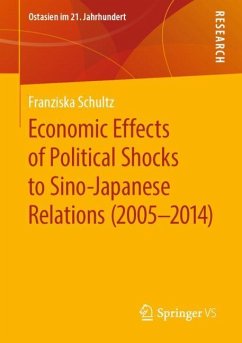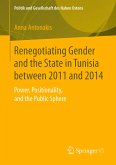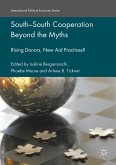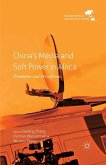Diplomatic issues, i.e. the textbook discussion, the Yasukuni debate, and the Senkaku/Diaoyu Islands dispute cause political shocks to Japan-China relations, but economic exchange is maintained. Franziska Schultz discusses political shocks within bilateral relations, analyzing shocks in 2005, 2010 and 2012 causing economic spillovers, such as boycotts, property damage and decreasing numbers of Chinese tourists to Japan. The correlation of monthly trade data with political conflict values (2005-2014) created by the author is analyzed with a vector autoregression (VAR) model. A qualitative content analysis of reports by the Japan-China Economic Association (1981-2015) according to Früh (2011) evaluates whether spillovers play a role for Japanese economic actors involved in China business.








